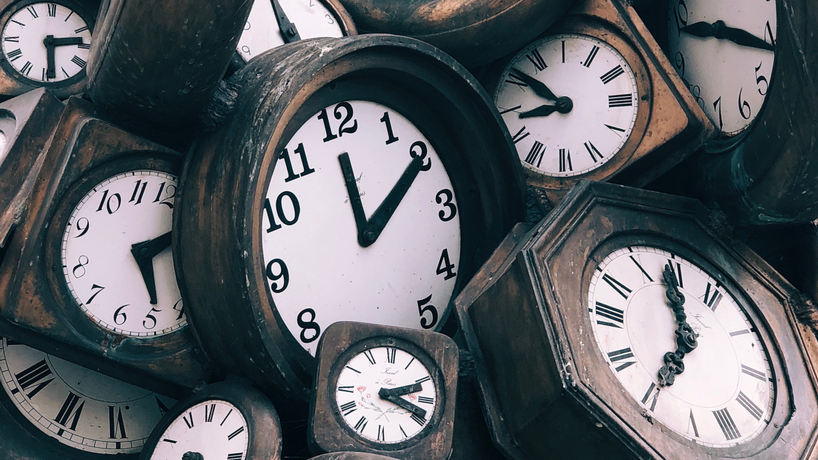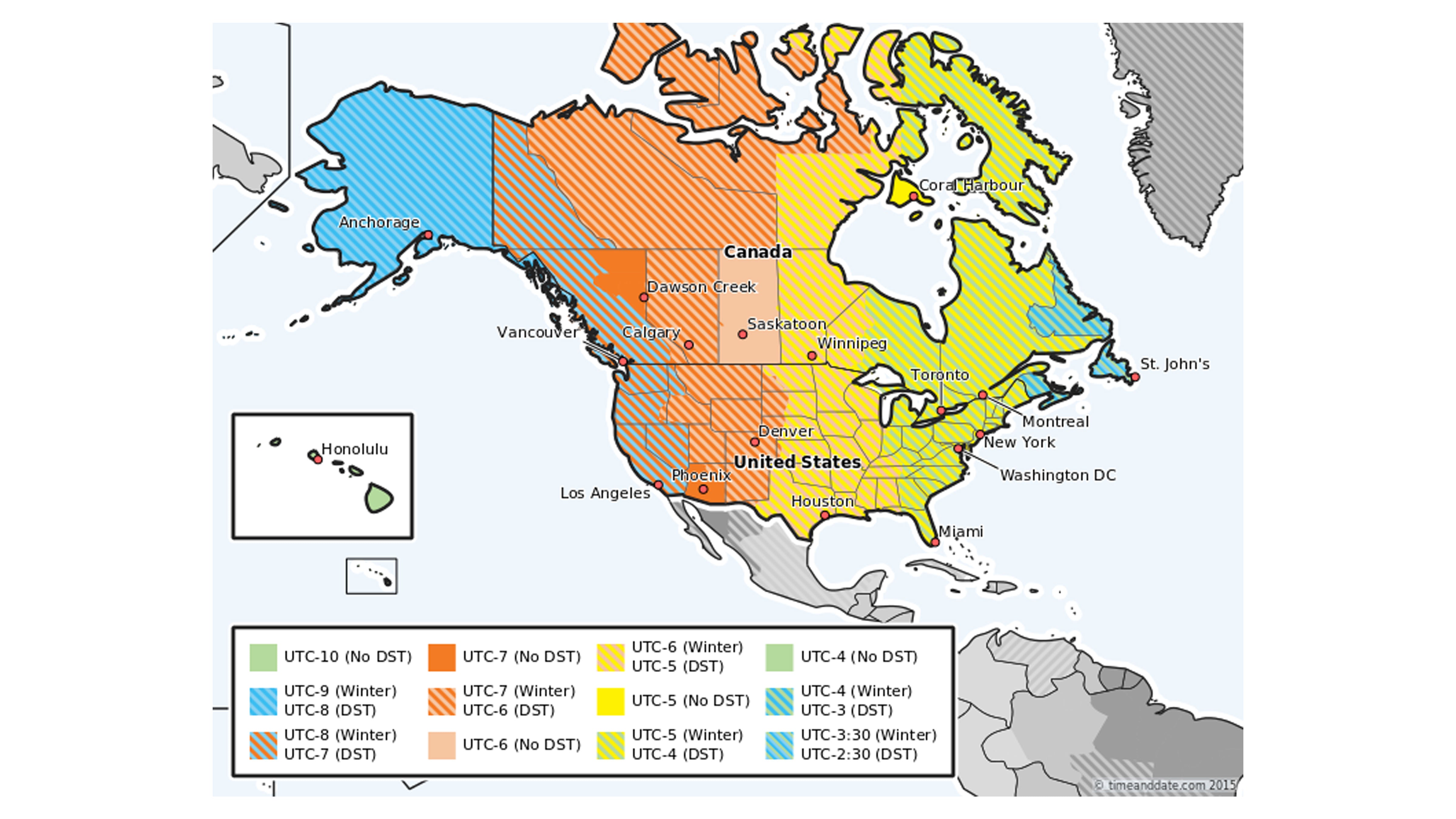
The Daylight Saving Debate
T&N TeamAhhhhh, an extra hour of sleep. That’s all anyone wants, right?
One more hour snuggled up in their T&N Mattress and sheets, with one arm tucked under their pillow and the other one holding the hand of their significant other. We all got this extra hour last night, so we’re all revving to go this morning, right?
Well, that seems to be a hotly debated topic. So in honor of everyone falling back (except for Hawaii, Arizona, and parts of Indiana—You know what you all did.) we grabbed two T&N employees and had them fight about whether we should keep Daylight Savings around or rid the world of its confusion forever. Rather than spilling blood all over our polished cement floors, we figured a blog post was the right venue for the fight.

We also felt like we should add a little bit of a disclaimer. Brea, our Anti-Daylight Savings debater, was born and raised in Arizona, which hasn’t observed DST for about 50 years. Danny, our Pro-Daylight Savings debater, grew up in Rhode Island (No, he doesn’t have a crazy/fun accent… Why DON’T you have an accent, Danny?!) so is exponentially more qualified for this debate.
Before we begin, here’s a clarification that we both learned during the research of this post: Time zones are stupid confusing. That’s not the clarification but it is good context. “Daylight Savings Time” is not just some generic concept—each time zone has a Standard Time and a Daylight Time version of itself. “Daylight Savings Time” is actually the time set from about March to November. So, areas in the Pacific Standard Time zone (PST) actually are in Pacific Daylight Time (PDT) for portions of the year.
A brief history
While DST here in the U.S. is relatively new (it wasn’t Federally mandated until 1966), its history is one rich with myths, half-truths, and a couple of pretty spectacular mustaches. Every article about DST you’ll read this week is going to let you know that you’ve been Berenstain Bears’d into thinking that Benjamin Franklin first conceived of the idea, but we’re better than that. Instead, we’ll highlight some of the of lesser known, but still critical figures and moments in the history of DST.
Nearly a century before the German Empire became the first “nation” to adopt DST in 1918, the little known Cadiz Cortes, the first national assembly in Spain, came up with an even better idea. They didn’t adjust their clocks at all, rather all meetings between May and September were moved forward 1 hour, so as scholars at the time put it, “they had more time to go suns out, guns out.”
Now, there is much debate as to who the so-called “inventor” of modern DST is, New Zealand’s George Hudson or England’s William Willet. Scholars contend it’s likely the two men came to the same idea around roughly the same time, so to decide which one to talk about, we went with a battle of the mustaches, and unfortunately, Mr. Willet was disqualified for PED use.

Mr. George Hudson (left), looking incredibly skeptical that PED’s were not used to grow Mr. Willet’s (right) mustache.
Mr. Hudson was an dedicated entomologist, but unfortunately that didn’t pay the bills, so he got a day job delivering the mail. Now, this job cut into Ol’ George’s insect collecting time, and you betcha that bugged him–you could say he was ticked off. In fact, it bothered him so much he presented a paper to his local philosophical society advocating on behalf of another hour of bug hunting time during the summertime. While at the time he was laughed off stage, Hudson got the last laugh as he lived long enough to see New Zealand implement DST in 1927.
Safety
Brea
So this topic is one that really contradicts itself. Research shows there is a decrease in crime during DST. However, people are so tired and confused during the transitions and when they wake up so much earlier that they cause more accidents—to themselves and others. So it seems we’re essentially weighing purposeful harm on others with accidental harm on others…
Suddenly this debate has turned into a test of ethics. I need more help here… Kant? Socrates? Locke? Bueller?
Danny
It doesn’t take a master criminal to realize it’s much harder to do bad things, like steal, when the sun is out. Even I, an upstanding citizen, knows if I were hypothetically trying to steal a street sign I would do it at night, so I could see any lights coming around the corner and duck behind that one big bush over the hill.
Yet some still argue that the transition to DST can be so draining on people it can actually cause more accidents. I for one, won’t stand for DST taking the blame for this. DST time gives you plenty of notice, over ten months in fact, as to when it’s going to be. If you don’t take the proper steps to adjust your circadian rhythm accordingly that’s on you, my friend.
Economic effects
Brea
As the prevalence of air conditioning rises, this argument becomes more and more moot. Yes, the sun is out longer, meaning you don’t have to turn on the lights as early, but that also means that it is hotter out, so your air conditioning is using more energy to keep your home cool.
In addition to economics in the home, there are studies that show a decrease in retail spending after the transition off DST. But this is shortly before the holiday shopping season—couldn’t more people just be holding off on their purchases to see what goes on sale—or hoping to get it as a gift? Did that study take the timing of these into consideration? Additionally, you know who doesn’t need daylight for shoppers to come by? E-commerce—specifically online mattress and bedding stores…

Danny
If there’s one thing that we can all agree on, it’s that we could always use a little more money in the bank. While Brea wants to use big words like moot to poo poo the nearly 5% daily electricity savingsthat can be be gained during DST, I’m here to show that can be quite substantial, and tasty.
This year there were 238 days during DST, assuming a 5% each day, come Sunday that would equate to almost 12 free days of free electricity! In Arizona, where the average monthly electricity bill is $114equates to a whopping $45 savings! Which now, thanks to the lovely people at Burger King can buy you 450 chicken nuggets. DST equals 450 more chicken nuggets for you, it’s really that simple.

Health
Danny
There are several fancy charts and graphs out there on the interweb that break down how based on the sunlight hours, time of day, and position to the equator, DST is, in fact, a positive thing for the body’s natural sleep cycle, but to be honest I can’t understand them.
Instead, I’ll lean on some of my personal experience with DST by saying something a lot of us know—Winter kinda stinks and without DST it would be like the Winter all year long. We could debate the pros and cons of winter all day, (Maybe another blog?) but one thing that it is for sure is dark, literally. And that lack of sunlight can really start to impact people, as sunlight exposure is one of the ways serotonin is released in the body.
Brea
OKAY. Danny made this argument about Winter in general, which is quite the battle to pick. Mother Nature is a force to be reckoned with. And why do you hate Jack Frost, the Santa Claus and the entirety of House Stark, Danny? What did they do to you?

Plain and simple, the transitions to and from DST are really bad for you. The risk for heart attacks increases in the few days after the spring transition, both transitions completely mess up your circadian rhythm, and, in fact, to assist in our natural sleep needs, we should be exposed to more light in the mornings and less light in the evenings. Literally the opposite of what the masterminds behind DST have planned for you.
In conclusion
Danny
Coming into this debate, I honestly never cared about, or for that matter even put much thought into DST—except the four times in college when losing an hour of sleep over the weekend felt like it was certainly going to kill me. But that’s the thing about DST; we tend to focus solely on the Sundays in March and October when our sleep is disturbed, overlooking all the fantastic things one extra hour of sunlight allows us to do in the months in between.
Whether it’s eating pizza on the beach past 8PM, being able to squeeze in one more game because you still have enough light to barely make out the ball, or catching insects like Mr. Hudson—Summer, and all the memories that come with it, wouldn’t be the same.

Moving to Arizona where the sun is out, what feels like all day, 365 days-a-year, it can be easy to forget how terrible those long, dark winter months can be. But as Sunday creeps closer, and folks in the Northern part of the country slowly begin to remember—damn, this week it’s going be dark at 4:15—the light will slowly fade from their faces, as it soon will from the sky, as they remember their one true hero, DST.
Joni Mitchell once said, “you don’t know what you’ve got til it’s gone,” and while that phrase is often overused (looking at you Counting Crows), with DST ending across the country, I think it’s particularly fitting.
Brea
After all this, I am actually more understanding of the concept of Daylight Savings Time clock shifts, but I still think it is pointless. To me, DST is strictly just everybody doing something because society requires it for you to be a productive human being and no one is questioning it because one person not doing it only harms that person.
NO ONE IS QUESTIONING THE MAN!
As a matter of fact, I think that the world should switch to one, 24-hour clock so that we can get rid of time zones too. (Think about how much easier it would be to set a meeting with your remote employees!) Back to the point at hand, DST is terrible and we should absolutely stop doing it.



